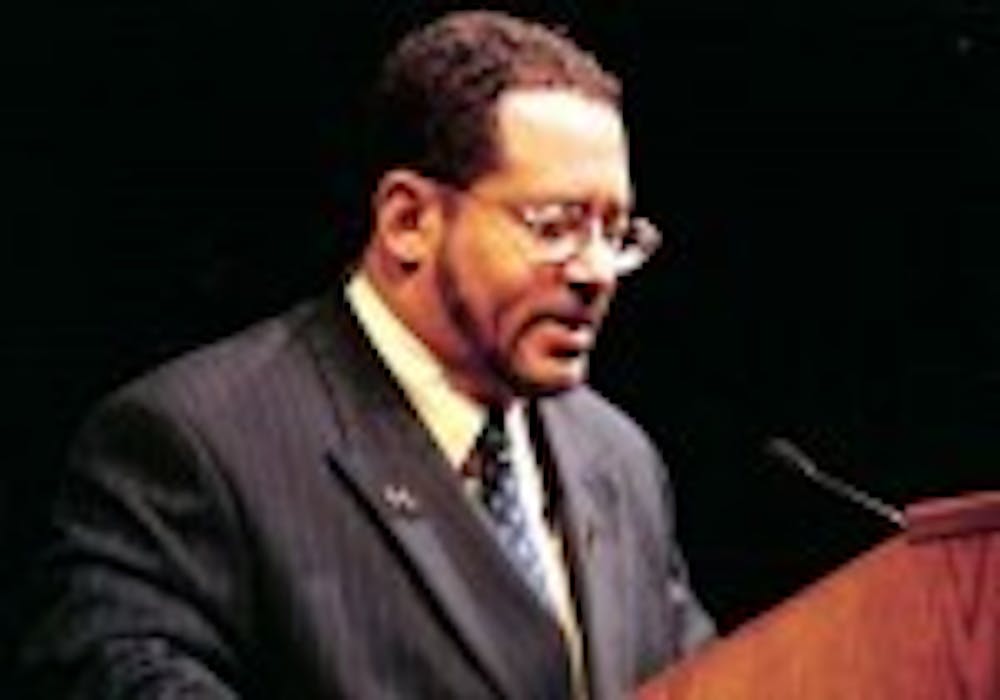Drawing from his knowledge of African American history and his personal observations of current society, scholar and best-selling author Michael Eric Dyson offered insight into the life and work of Dr. Martin Luther King, Jr. Thursday night at the Center for the Arts as part of UB's Distinguished Speaker Series.
Best known for his social and cultural commentary, Dyson discussed issues ranging from government policy like Affirmative Action, to race in pop culture, such as the use of Ebonics in cartoons like Fat Albert.
Dyson's speech was the keynote address of the 29th Annual Martin Luther King Jr. Commemoration, a yearly event honoring the great civil rights leader. Dyson, an ordained Baptist minister like King, has been lauded as a keen cultural critic whose voice infuses national dialogue with a strong African American voice.
"I am a Trojan Horse with many African American men inside of me," he said. "When I get somewhere, I just release them all out."
Dyson said King did not see the importance of race in anything that he did, and that race was an imaginary, societal construct.
"We have lived with race long enough to see how absurd it is as a word in our daily vernacular," he said.
In homage to King, Dyson told many anecdotes from the civil rights leader's life. He said King would sometimes live off of only $10,000 a year, donating the rest of money that he received from speeches, books and other venues to his alma mater, Morehouse College, and into strengthening the Civil Rights Movement. He said nearly all King's time was devoted to his cause.
"Dr. King was a highly gifted individual that used his brain in its entirety," he said. "He would stay up many late nights burning the midnight oil in his studies."
Dyson also discussed issues that came out of the civil rights movement, specifically Affirmative Action. Dyson said he opposes criticism of Affirmative Action and said though it has its flaws, one only has to look at educational funding to see where the equality program is needed.
"Schools in a rural area may be given $15,000 for funding while city schools may be given only $7,000," Dyson said. "That is not fair."
Dyson also criticized aspects of modern African American pop culture, turning a popular rap song and African American stereotype on its head.
"I don't know what you heard about me, but I'm a P.I.M.P," he said, turning a popular rap lyric from 50 Cent into a positive message. Dyson changed the lyric's acronym to mean Public Intellectual with Moral Principles, a reference to himself and a new role he hoped African Americans can aspire to. Roars of laughter echoed throughout the theatre as Dyson quoted lines from other such artists such as Jay Z, Notorious B.I.G., and the late Tupac Shakur.
Dyson said hip-hop artists were not necessarily bad role models, as some, such as Shakur, are artists whose talents are positives within the African American community.
Dyson singled out Michael Jackson as one African American pop star who has done a disservice to African American identity, referring to Jackson as having a "de-Africanized conception of African identity."





